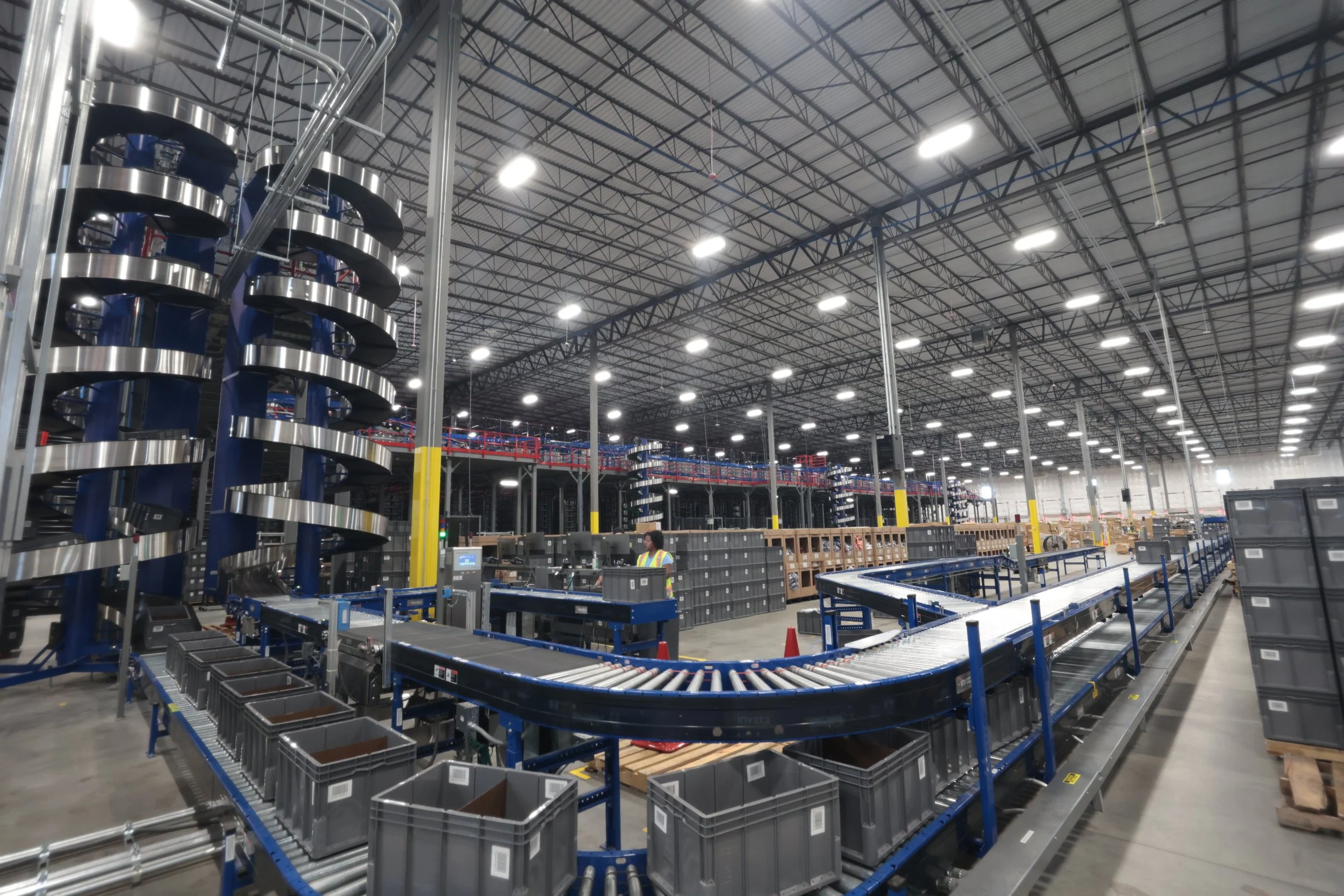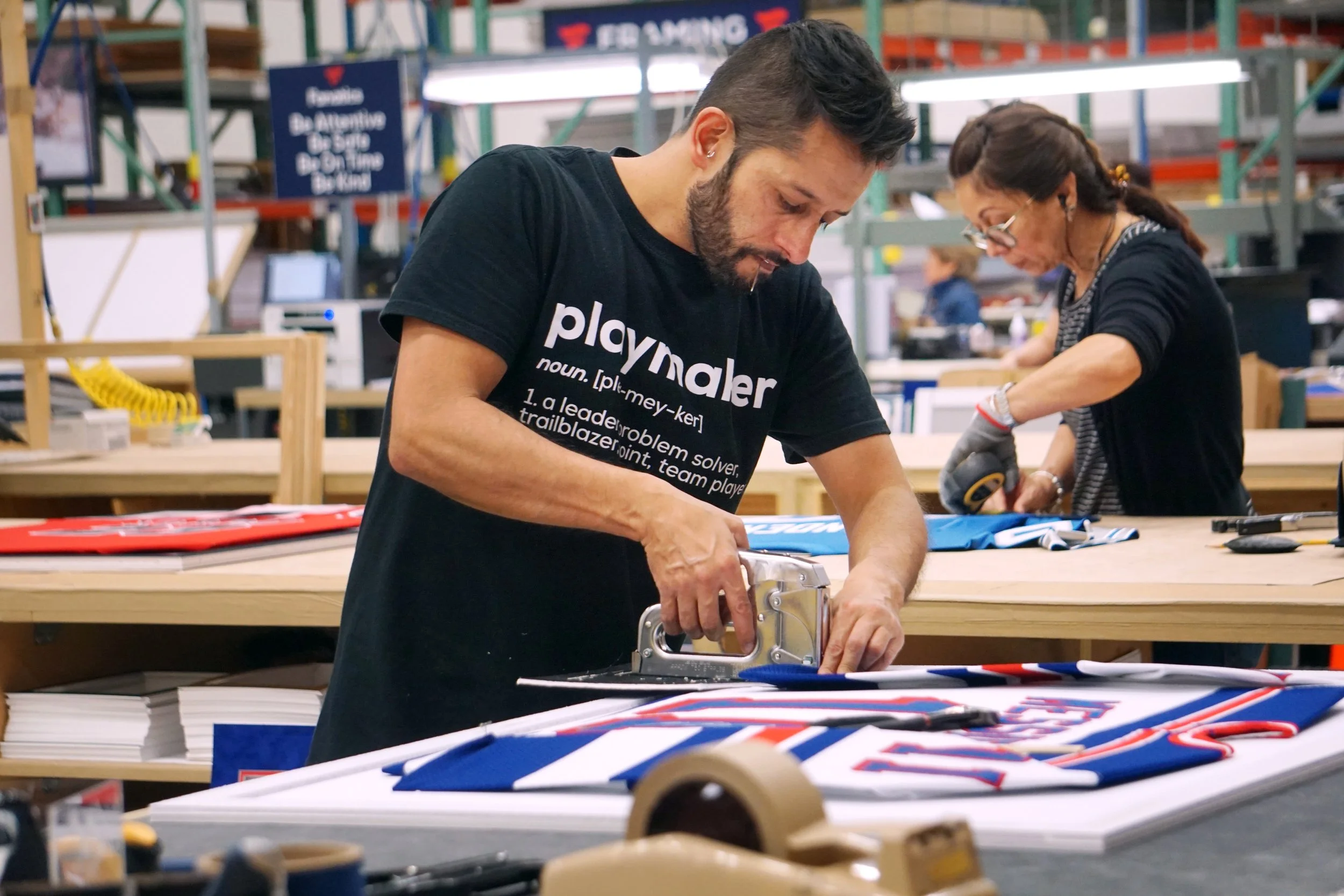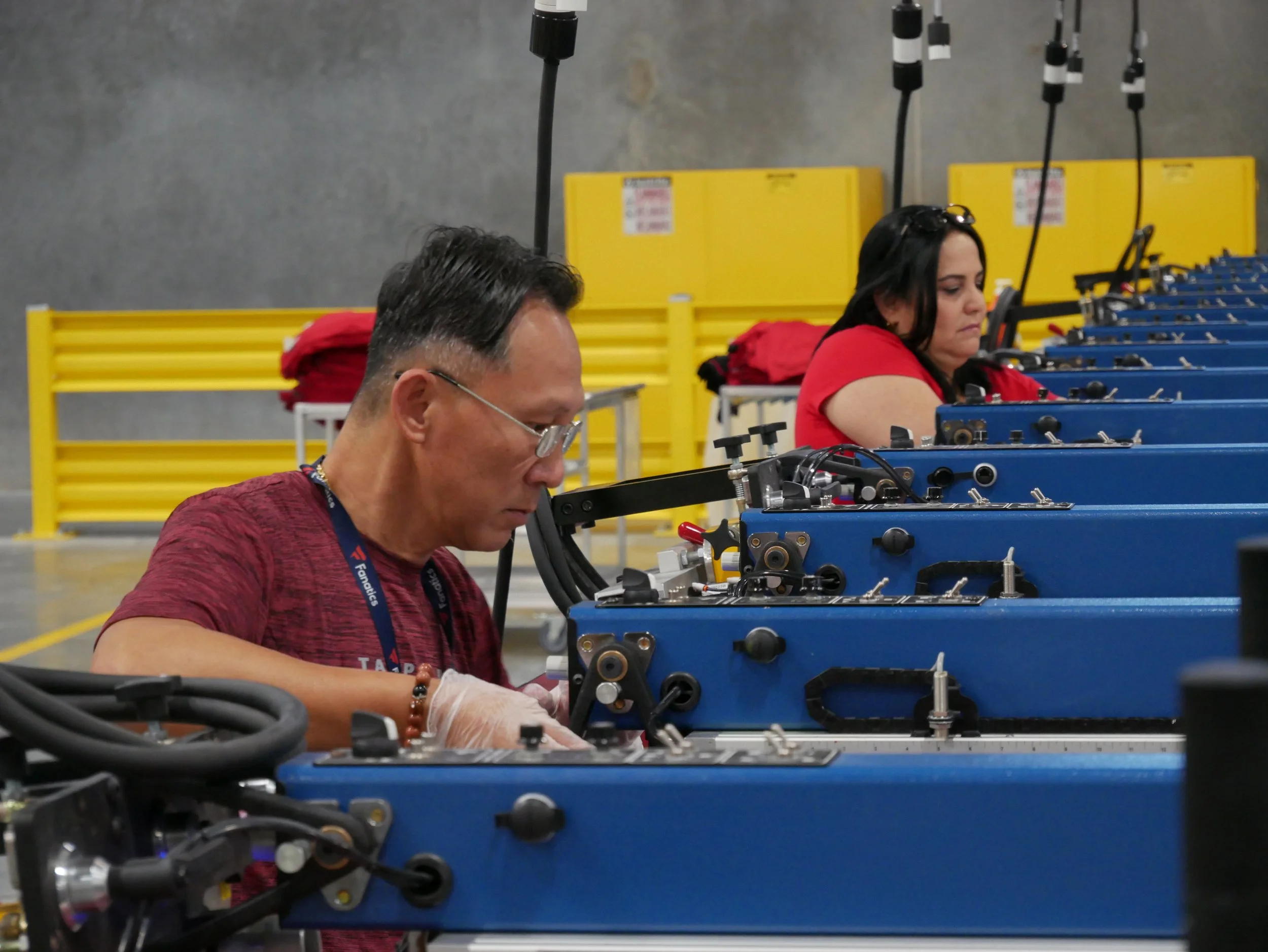
environmental sustainability
At Fanatics, we’re committed to minimizing the environmental impact of our products and operations through the use of more sustainable processes and materials. We have developed an extensive strategy that’s focused on our manufacturing processes, our products, and 3rd-party supply chain facilities. Our programs monitor key impact areas, including climate, water, chemistry, and waste.
Our Approach
Climate
Since 2023, we’ve conducted annual GHG emissions inventories for Scopes 1 and 2, aligned with the Greenhouse Gas Protocol. Scope 1 covers direct emissions from owned or controlled sources, while Scope 2 covers indirect emissions from purchased energy.
Our Estimated 2024 Scopes 1-2 GHG Emissions Results (MT CO2e):
Scope 1 - Stationary: 10,229.56
Scope 1 - Mobile: 5,716.08
Scope 2 - Location-based: 37,832.80
Total 2024 Scopes 1-2 Emissions (MT CO2e): 53,778.44
In 2024, we started the process of setting a GHG reduction target for our Commerce business via the Science-Based Targets Initiative (SBTi) and are now developing our base-year GHG inventory for submittal to SBTi. As part of this exercise and in preparation for upcoming required Scope 3 disclosures, we’ll also conduct a full Scope 3 GHG inventory to better understand the emissions generated from our products, supply chain and transportation methods.
Product
Most environmental impacts come from our products and upstream supply chain. To address this, we also focus on sustainable product design and development. In 2022, we joined the Textile Exchange to help drive positive change in the fashion industry including the reduction of pre- and post-consumer waste and the advancement of more circular ways of producing apparel products. In 2023, Fanatics Brands also joined a global cotton initiative focused on improving farming practices globally, including water efficiency, soil health, and worker rights.
Manufacturing
We’re also affiliated with Cascale (formerly the Sustainable Apparel Coalition), which aggressively promotes sustainable apparel production. By broadly using Cascale’s Higg Facility Environmental Module (FEM), we measure the environmental performance of Tier 1 and Tier 2 manufacturing facilities and track their GHG emissions, energy use, and wastewater impacts.
LOOKING AHEAD
We will continue reducing our environmental impact by:
Reducing packaging content and energy use, driving both sustainability and cost savings. We believe that by focusing on “using less,” we can save tons of unnecessary waste and millions of dollars.
Doing our part to reduce our overall GHG impacts – with a particular focus on reducing Scope 3 emissions – largely our purchased goods and services.
Collaborating with supply chain partners, particularly fabric mills, to reduce energy and water use, eliminate unnecessary waste, drive the use of safe chemicals and more effectively manage wastewater. We will focus our efforts going forward on fabric production where much of the environmental impact of the apparel supply chain occurs.
Expanding environmental efforts across our Collectibles and Betting & Gaming divisions.




